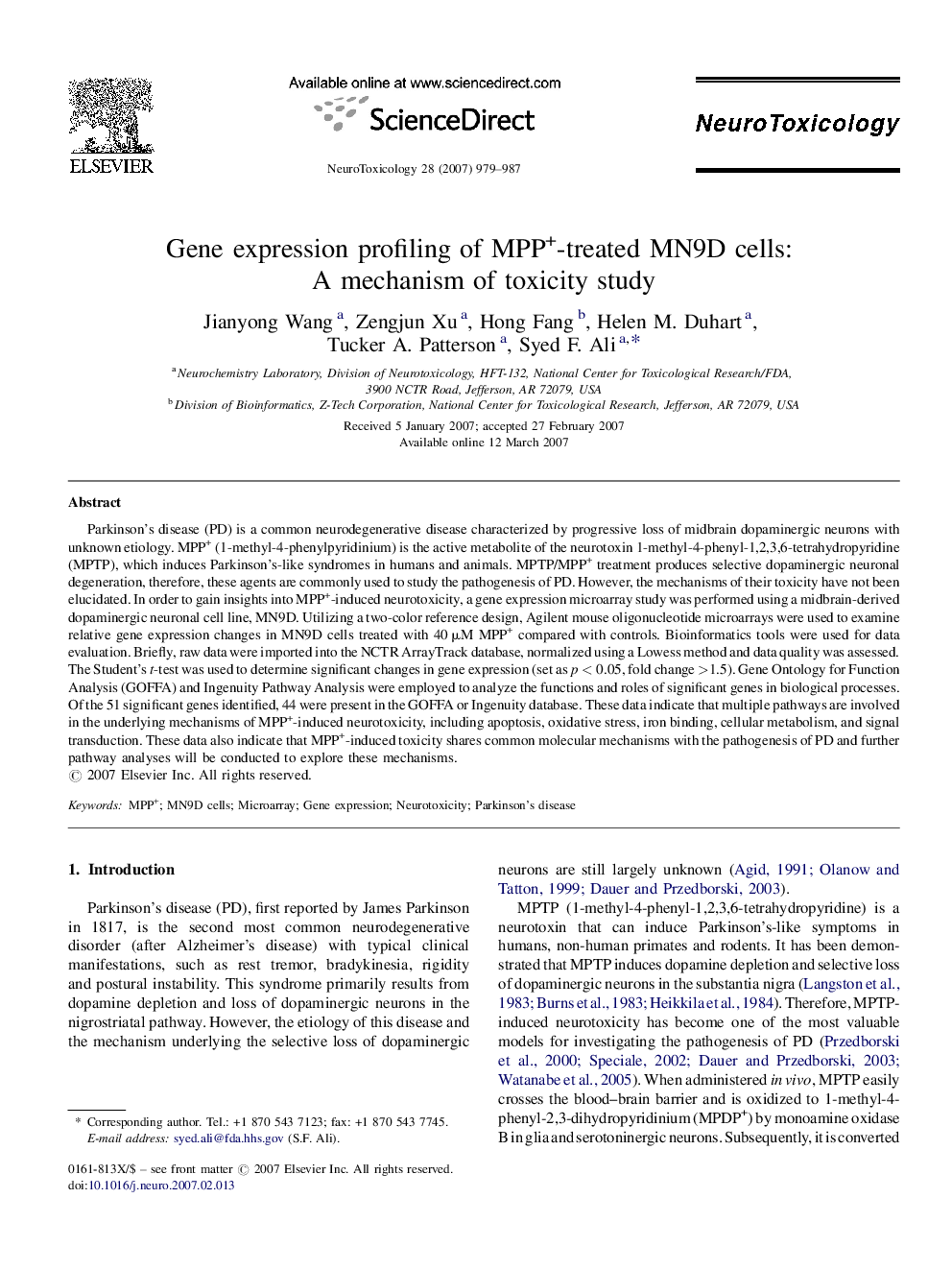| Article ID | Journal | Published Year | Pages | File Type |
|---|---|---|---|---|
| 2590427 | NeuroToxicology | 2007 | 9 Pages |
Parkinson's disease (PD) is a common neurodegenerative disease characterized by progressive loss of midbrain dopaminergic neurons with unknown etiology. MPP+ (1-methyl-4-phenylpyridinium) is the active metabolite of the neurotoxin 1-methyl-4-phenyl-1,2,3,6-tetrahydropyridine (MPTP), which induces Parkinson's-like syndromes in humans and animals. MPTP/MPP+ treatment produces selective dopaminergic neuronal degeneration, therefore, these agents are commonly used to study the pathogenesis of PD. However, the mechanisms of their toxicity have not been elucidated. In order to gain insights into MPP+-induced neurotoxicity, a gene expression microarray study was performed using a midbrain-derived dopaminergic neuronal cell line, MN9D. Utilizing a two-color reference design, Agilent mouse oligonucleotide microarrays were used to examine relative gene expression changes in MN9D cells treated with 40 μM MPP+ compared with controls. Bioinformatics tools were used for data evaluation. Briefly, raw data were imported into the NCTR ArrayTrack database, normalized using a Lowess method and data quality was assessed. The Student's t-test was used to determine significant changes in gene expression (set as p < 0.05, fold change >1.5). Gene Ontology for Function Analysis (GOFFA) and Ingenuity Pathway Analysis were employed to analyze the functions and roles of significant genes in biological processes. Of the 51 significant genes identified, 44 were present in the GOFFA or Ingenuity database. These data indicate that multiple pathways are involved in the underlying mechanisms of MPP+-induced neurotoxicity, including apoptosis, oxidative stress, iron binding, cellular metabolism, and signal transduction. These data also indicate that MPP+-induced toxicity shares common molecular mechanisms with the pathogenesis of PD and further pathway analyses will be conducted to explore these mechanisms.
